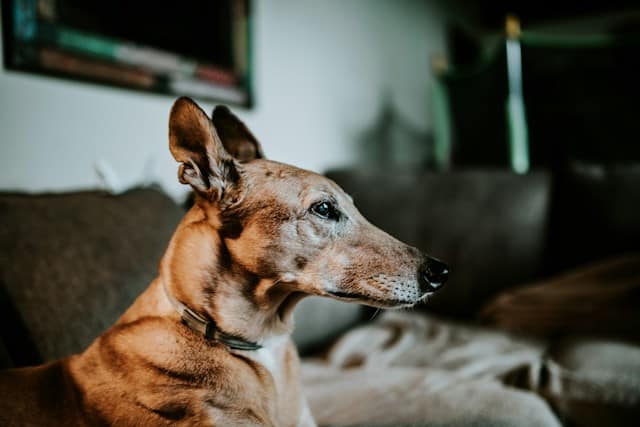How to care for a senior bird?

As the years accumulate, the care needed for a senior bird becomes increasingly specialized. Birds, much like humans, experience a range of changes as they age. Their energy levels may wane, dietary needs often shift, and their susceptibility to illness can increase. For those of you with feathered companions in their golden years, understanding and adapting to these changes is crucial. In this article, we will navigate through the specifics of caring for older birds, from the importance of an appropriate bird cage to the nuances of avian veterinary care.
Bird ownership is a commitment that extends over many years, and as your pet bird approaches its senior years, your approach to its care must evolve. It’s not just about providing bird food and water; it involves a comprehensive plan that ensures their longevity and happiness. Let’s explore the steps to ensure that your senior avian friend will continue to thrive in your care.
A lire en complément : Why do some dogs fear thunderstorms?
The Importance of an Appropriate Bird Cage for Older Birds
For senior birds, the bird cage is more than a home; it’s a haven designed to support their changing needs. As birds age, their mobility can decrease, and they may find it challenging to navigate the perches and toys they once enjoyed. It becomes essential to adapt their living space to accommodate these changes.
Firstly, consider the layout of the cage. Lower perches will help prevent injuries from falls as your bird may not be as agile as it was in its youth. The material of the perches should also be gentle on their aging feet, perhaps switching from hard woods to softer, rope-based options.
Dans le meme genre : What are safe bedding materials for your guinea pig?
The bottom cage area is another aspect to pay attention to. Senior birds might spend more time on the cage floor, so ensuring it’s comfortable and clean is important. A padded floor with easy-to-clean surfaces will help prevent sores and maintain hygiene.
Additionally, accessibility to food and water is essential. Feeding stations should be at a height that does not require much climbing. For those senior birds with diminished vision, brightly colored bowls may help them locate their sustenance with ease.
Special Dietary Needs of Aging Birds
As your bird advances in years, its dietary needs will shift. An older bird’s metabolism slows down, and they may not be as active as they once were, which means their diet needs to be adjusted to prevent obesity and to cater to their specific nutritional requirements.
A diet that promotes good health for senior birds often includes lower-calorie options and foods that are easy to digest. Supplements like Nutri-Berries can be beneficial, as they are often formulated to provide a balanced diet suitable for less active birds.
Switching to softer foods can also help those with worn or missing beaks. Brands like Higgins Premium offer a selection of senior bird foods that cater to these needs. It’s critical to maintain a variety that ensures your pet bird is getting all the necessary vitamins and minerals.
Consulting with an avian vet can give you a tailored diet plan for your bird. They can recommend specific bird food brands or supplements that may benefit your senior pet, ensuring that you’re providing the best nutrition for its unique needs.
Healthcare and Veterinary Check-ups
Regular check-ups with an avian veterinarian are vital for maintaining the health of senior pet birds. These visits can help detect and manage age-related health issues such as arthritis, organ dysfunction, and hormonal imbalances before they become severe.
During a vet visit, your bird will receive a thorough physical examination. The vet may also recommend diagnostic tests such as blood work or X-rays to get a clearer picture of your pet’s health.
Additionally, an avian vet will provide valuable advice on the care and maintenance of senior birds. They can suggest modifications to your bird’s environment that will make life easier and more comfortable for them.
Remember, your bird may not show signs of illness until it is quite advanced due to their instinctual behavior to mask symptoms. Hence, proactive healthcare is a step you cannot afford to skip when caring for an older bird.
Mental Stimulation and Physical Activity
Keeping your senior bird mentally and physically stimulated is crucial for its well-being. While they may not be able to play as vigorously as they did in their youth, they still require engagement to prevent boredom and depression.
Providing a variety of bird toys that cater to gentler play is a good idea. Puzzles that reward with treats can keep their minds sharp without requiring too much physical exertion. Similarly, toys that encourage foraging can mimic natural behaviors and provide gentle exercise.
Physical activity, although less intense, should still be part of their routine. Encourage gentle movement by placing perches at various levels that they can easily climb. Interaction with their human companions is also a form of mental stimulation that senior birds will benefit from.
Creating a Comfortable and Safe Environment
Creating a comfortable environment for your senior bird will contribute significantly to its quality of life. A stable and warm environment is critical as older birds often have a harder time regulating their body temperature.
Ensure that your bird’s cage is positioned in a part of your home that is free from drafts yet still allows your bird to be part of the family activity. Exposure to natural sunlight is beneficial, but also provide shaded areas for them to cool off.
Moreover, cleanliness is paramount. A clean cage prevents the buildup of bacteria and parasites that can be especially harmful to older birds. Regularly change the water and clean food dishes to avoid contamination.
Lastly, senior birds may become more sensitive to stress, so maintaining a routine and a peaceful environment can help keep their stress levels to a minimum.
Conclusion
Caring for a senior bird encompasses a spectrum of considerations, from modifying their bird cage for easier accessibility to adjusting their diet to suit their aging bodies. Regular check-ups with an avian veterinarian are necessary to preemptively tackle health issues, and maintaining mental and physical stimulation will keep your pet engaged and content. Moreover, creating a safe and comfortable environment is paramount for the well-being of your older feathered friend.
The commitment to caring for a senior bird may seem daunting, but the joy and companionship they bring to your life make it a worthwhile journey. By following these guidelines, you can ensure that your senior bird lives out its twilight years in comfort and happiness, continuing to be an integral part of your family for as long as possible.
